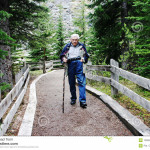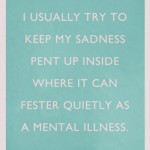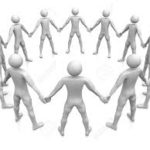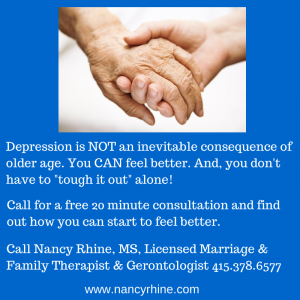mental health
Onward Thru the Fog
 I want to write a little more about what I see us going through, collectively, as a culture right now in this time of the Covid-19 pandemic.
I want to write a little more about what I see us going through, collectively, as a culture right now in this time of the Covid-19 pandemic.
I know this is a hard time for everyone. In renowned grief expert Dr. David Kessler and shame/vulnerability researcher Dr. Brene Brown’s remarkable recent talk on Grief and Finding Meaning, they agreed that our own grief is always the biggest. Which is to say that regardless of the extent or type of loss everyone has had, our own grief feels the biggest, and that is a normal feeling!
We are each experiencing individual losses in this time of the coronavirus – loss of routine, loss of freedom to run around to wherever we want whenever we want, perhaps loss of loved ones, loss of our own health, loss of job/businesses or income, loss of school for our kids, loss of vacation or travel plans. The list goes on and on.
And, then, together we are all collectively experiencing this unknowing when it comes to the future. How fast will things open up? When will they come up with widespread testing? When will there be a vaccine and how will it be distributed? When will the coronavirus abate? Will things get better in the summer? Will there be a big recurrence in the fall and the winter? When will the economy recover?
to the future. How fast will things open up? When will they come up with widespread testing? When will there be a vaccine and how will it be distributed? When will the coronavirus abate? Will things get better in the summer? Will there be a big recurrence in the fall and the winter? When will the economy recover?
Nobody knows the answers to these questions. Nobody. Experts and pundits can guess. We can and do guess too. But we don’t know for sure.
So, there is the biggest lesson for us as humans, in my opinion. Living with this not knowing. Staying in the present. Slowing down.
Oh yes we still have to make some plans where we need to for, for instance, continuing education for our kids, care for our elders, projects ongoing at our jobs, getting supplies in for sheltering in place. Other than that, though, many of us are finding it new and interesting that we have time to think about things we normally don’t have a chance to get to.
We may be turning more to thoughts about our relationships. Our lives. Our past. Our futures. Many of us are also turning towards those piles in closets or garages or basements, and going through stuff we have put off looking at. Several people I know sorting through old photographs. Some people’s gardens are looking pretty darn good! 😊
But most importantly, I want to say that we can admit to ourselves and each other that this unprecedented “calamity” as Eckhart Tolle recently called it, is an ongoing challenge.
We need to give ourselves a lot of slack – it’s an up and down ride – sometimes we’ll feel stoic and pretty ok, sometimes we can even see the benefits of slowing down and not racing around as much as used to. And sometimes we’ll feel crabby. Irritable. Or sad. And fearful. Quite possibly exhausted – emotionally and physically.
We are ALL going through these feelings. Try to journal so you have a place to express yours. If you have a therapist, keep those appointments going online or on the phone. If you can gather family or friends together in Zoom or FaceTime, talk some about how it’s really going. Ask for help when you need it. Don’t let feeling shy hold you back from taking the risk of showing some vulnerability. You might find that doing that strengthens and deepens your bonds with friends.
Try not to get too far ahead of your skis. Keep breathing. Find creative distractions. Don’t watch too much hysterical news. Take naps. Take walks. You know the drill. I will check in more later! Meanwhile, as we say in San Francisco: Onward Thru the Fog!
Sending love, Nancy
May you be safe.
May you be well.
May you be protected.
May you be peaceful and live with ease.
Successful Aging Takes a Team!
Successful Aging Takes A Team!
Let’s talk about why it’s critical to their quality of life to have a strong support team around seniors who are growing older.
Why?
Because I see so many older people in my private practice who face, for example, situations where they are grappling with:
- family members or loved ones with very strong opinions about what is best for them – opinions danabol that may or may not be informed and wise
- *no* family members or close friends at all to advocate for them
- a primary care physician who is prescribing medications but not following them in after-care. What is known as the “diagnose and adios” routine.
- a specialist or two who is also prescribing – say for instance a cardiologist or endocrinologist – but who is not tracking the interaction of *all* of the medications involved
- a psychiatrist who may be also be treating and prescribing psychiatric medications
- possibly a nutritionist, alternative health practitioner or two prescribing supplements, vitamins and minerals which may all be fine but which also carry side effects that can contribute to mood problems.
Way more often than not, there is very little, if any, communication and coordination amongst the health professionals. This coordinator function may have been done in the past by the primary care doc who managed the broad perspective overview of how each of his patients were doing. But nowadays primary docs are under so much time pressure in their practices that they just do not have time take on this role.
In order to build that coordinated team which will support an individual’s successful aging, it takes someone stepping into the role of being a skilled ADVOCATE. A person who knows how to coordinate effective communication amongst team members and who is in charge of reaching out on behalf of the patient to represent their concerns. Someone who can help the patient communicate their concerns and questions to other team members, and who also helps the patient remember the answers and instructions of doctors. Team members need to work in concert with each other, supporting the various lens through which each patient is viewed.
All of this process needs to be done with the utmost RESPECT for each patient where the patient has TRUST in the advocate that he or she is representing the wishes of the patient towards the goal of the best possible quality of life at any stage.
Gerontologists and mental health professionals who understand the importance of building good communication and coordination amongst care teams can be invaluable to the patient and family. Sometimes, it is care managers who provide this role, sometimes it’s an adult child, and sometimes it’s gerontological counselor.
Whoever it is that takes the lead in this role, a support team that is identified, built, coordinated and in good communication, will result in a patient who is much more likely to thrive and much less likely to fall through the cracks.
This is the health care situation for older people in our country today. Just the facts. And totally doable to navigate through it successfully. With help. With a solid, caring team.
Why Gerontological Counseling for Older People & Their Families?
Why Does Gerontological Counseling Yield the Most Effective Healing?
If you or your loved one is a senior, the counselor you or she sees absolutely, in my opinion, needs to be up to date on the latest research involving aging.
Take, for example, the topic of brain neuroplasticity and neurogenesis. Why is it critical to know about this when counseling older people? Because, not even 10 years ago in graduate psychology programs around the country, interns were taught that brains decline from age 30 on! That things were was all “downhill” – brain cells wise – from there. The explosion of current, ground-breaking brain research that we’re seeing absolutely refutes this dire and incorrect belief. Not only is that attitude false, it is anti-healing!
Our brains are changing all the time. This is called neurogenesis. It happens until our very last breath. In order to support good brain health, we need to provide some basic tools such as good nutrition, limiting sugar and processed carbs, making sure we get plenty of daily exercise, not smoking, reducing environmental toxins, decreasing stress as much as possible, practicing good mental health habits/practices, staying involved socially with family and friends, making sure we take the appropriate supplements, vitamins and minerals, etc.
When I studied psychology as a graduate student, I learned about Eric and Joan Erikson’s famous Stages of Human Development. They had first published their theories and discoveries when they themselves were very young. As they grew older they realized what the research is showing now. That is, that the years from midlife to 90 years old and up are full of rich experiences, new discoveries, and constant evolution. As Eric and Joan moved through their 60’s, 70’s, 80’s and 90’s, they abashedly apologized for making ill informed assumptions that our brains basically stagnate after a certain age.
Now, I am not saying that our memories or that the way we think doesn’t change. We all experience what is called age-related cognitive change as we grow older. That is most often because we have so much more data in the “hard drives” of our brains! We can also suffer from ill health of various sorts, inflammatory conditions that affect our thinking, the side effects of medications that can impact us negatively, and depression and anxiety that can also cause foggy thinking. It’s important to approach conditions like these from a looking at the whole person approach to see what the underlying root problems may be.
The important thing to realize is that it is wrong to believe that older age inevitably leads to bleak depression and cognitive decline. Rather, we can and do grow into wisdom and the ability to cut through the chaff to the gist of what is needed to thrive. In fact, the root meaning of word wisdom, Joan Erikson wrote, is “to know how to”.
I’ll end by saying that too often I hear therapists say that they see anybody, that people are all the same. I think we may be similar but I know, without a doubt from my years of professional practice and my life experience, that the issues we face in older years are different and often far more complex, multi-layered and nuanced than when we are young. Plus, our American culture adds an often-harmful overlay of ageism to the mix.
Therapy with a gerontological counselor can help you get more quickly to the root of what is happening with you and/or your loved one and is up-to-date on other resources that can help you get the attention, care and healing support you need.
Bringing Balance into Our Lives as We Grow Older
 As we get older, we are exposed to increasing loss and stressors. These can be deaths of loved ones and family members. Sometimes it’s illness, it may be chronic pain. Or watching people we care about encounter difficulties and running into more problems ourselves.
As we get older, we are exposed to increasing loss and stressors. These can be deaths of loved ones and family members. Sometimes it’s illness, it may be chronic pain. Or watching people we care about encounter difficulties and running into more problems ourselves.
Joan Erikson, the renowned psychologist and wife of psychologist Eric Erikson, talked about needing to let go of things as we climb up the hill of getting older. Old habits, old concerns, old worries, old ways of being – we have to start looking at those and discarding those that have become too heavy to continue to carry. She said:
“Everybody says it’s a good idea to lighten your load. It’s like walking up a hill. And then you realize that the load that you’re carrying is not worth the trouble, it’s not worth the strength that it takes to keep it with you. And you begin to just gladly drop this bit here and this bit here and be freer to get up that steep hill.”
This “purging” effect as one of my therapist friends calls it, involves letting go of a range of things. It can be not eating as much and therefore extra weight. It can be possessions which we have accumulated and carried around with us in our homes. Those possessions which seem to multiply by themselves and we look around finding ourselves surrounded by too many things. Time to let go!
Sometimes it’s relationships we are looking at and letting go of. Old friends who were wonderful in one season of our lives may not feel nurturing or right anymore. This is not a blame and shame process. This is normal. Friends, colleagues and associates come and go. “Culling” and honing and winnowing are all practical terms having to do with earth and sometimes farming. They are good metaphors for how we are gardening through our lives.
To extend the metaphor, plants need room to grow and thrive. If they, or we, are too crowded, our growth is stymied. How much room we need as individual humans is a very personal journey and decision. It may differ at various times of our lives because numbers of relationships, too, have seasons.
A coping mechanism mentioned by many mental health practitioners and mindfulness teachers is bringing more of our attention to positive things in our lives. Big things, but also the small little day to day, hour to hour, minute to minute things that delight us. And by delight, I mean that bring light into our hearts. It might the sight of a beloved child, pet, the smell of a sweet sweet rose, the taste of something delicious, the feel of the warm sun on our face, the rays of sunshine filtering down through tall trees, the sound of the ocean, etc.
Those enjoyments can help bring us balance in and of themselves, and *especially* so when we pause and savor them for more than a second. In fact, brain research has shown that it takes the brain at least *10 seconds* to take a momentary experience and be able to register it into memory. 20 or 30 seconds is better.
So, for starters, a simple thing to do to move towards balance is to take the time to notice positive experiences in our lives, note them with all of our senses where possible, and stay with them for a few seconds. A regular practice of this will attune our brain to noticing more of these experiences and help bring balance into our perspectives and lives. Simple and powerful at the same time.
Depression is NOT inevitable in older life.
 Our youth-oriented Western culture seems to tell us that we are all doomed to succumb to debilitating depression as an inevitable part of growing older. This is not true!
Our youth-oriented Western culture seems to tell us that we are all doomed to succumb to debilitating depression as an inevitable part of growing older. This is not true!
Sure, it is true that getting old “ain’t for sissies” as Bette  Davis famously put it. There are a myriad of challenges that confront us. Nobody would argue that! We know what those challenges are – all kinds of changes, losses of various sorts from little things to profound ones, aches and pains, the gamut.
Davis famously put it. There are a myriad of challenges that confront us. Nobody would argue that! We know what those challenges are – all kinds of changes, losses of various sorts from little things to profound ones, aches and pains, the gamut.
But, you can also thrive in later years. It’s about your mindset, your emotional and spiritual practices and your strong support network. The kids called support networks these days, their “posse”. Your posse can be made up of old and new friends, your peers, support group members, family, pets, counselors, trusted doctors and spiritual advisors.
Generally, people like you have an assortment of healthy, tried-and-true coping skills that have gotten you this far in your life. Perhaps now, however, you are encountering an accumulation of situations that tax those skills. It may be time to remember your old skills and to learn new ones. It may likely be time as well to rethink your life’s purpose. Purpose is key to keeping your mood up and your heart content.
What stands in the way? Well, too many times, that old Shame rears its head and tells you that you ought to be able to figure this out on your own, that you ought to be able to just “tough it out” and do it alone or else you’re weak. You can’t burden your children so what to do? As the blue box here says, don’t keep it bottled up inside!
What people often don’t realize is that you are not alone in feeling challenged, stressed, confused, overwhelmed or anxious. These feelings surface when we are going through new phases and transitions in our lives. It’s during these times that it becomes so important to realize you don’t have to reinvent the wheel. There are many practices and tips for how to increase your enjoyment of life in older years.
The important thing is to not give up and figure that just depression goes with the territory. That may be what society tells you, it might be the prevailing attitude. But it is not true. Reach out for help. Counseling and support can turn your life around and help you reclaim your confidence, solid footing and peace of mind. Isn’t it worth a try? What have you got to lose!
Depression & Anxiety Are Not Signs of Weakness

It’s Vital to Recognize Depression in Aging Adults
This is a very good, short article on why it is so important to recognize the signs and symptoms of depression in older people. They may not recognize that they themselves are depressed so it is imperative for caregivers and loved ones to be on the lookout. Undiagnosed depression can lead to isolation and even suicidality. Most cases of depression can be cured. This article is written by an older gentleman who has over 30 years experience working in retirement community and health facility administration. He includes reminders and tips for fighting depression in this article. Recognize Depression in Older People – You May Save A Life
Fall Prevention
Fall Prevention. Falls are a high priority concern for middle age and older people since they are at increased risk for bone fractures and other fall-related injuries. Using a cane or eventually a walker helps many individuals to be steadier and more confident while walking. Some of the reasons, clients cite for falling are: tripping on something, their legs just “giving out”, and feeling dizzy. One often overlooked cause of unsteadiness and lightheadedness is dehydration. As we age, our sense of thirst tends to decrease – so it is important that we consciously make sure to drink plenty of water every day. An easy way to help fight the dehydration that can occur over the course of the night is to keep a glass of water on your night stand. When you wake up, sit up and drink the water before getting out of bed. Also, squeezing your calves and circling your ankles *before you get out of bed* will help increase your lower body circulation and make you feel steadier when you do get up and on your feet. For more fall prevention tips, check out http://www.mayoclinic.com/health/fall-prevention/HQ00657 .
Baby Boomers & Older Adults – Healthy Aging in Marin
I will be posting articles and links more frequently that I hope will be useful and of interest to Marin baby boomers and older adults.
Note: As a Licensed Marriage & Family Therapist, I do not give medical advice. I do, however, point out situations where it might be a very good idea to consult with your MD. Please feel free to write to me and ask me to address any topics you want to suggest in future blog posts. Best wishes, Nancy
The Top 10 Therapists of Recent Decades
This is a wonderfully insightful and thought-provoking article from Psychotherapy Networker about a survey of APA members who select the most influential and ground-breaking therapists of recent decades and why.
It’s called “The Top 10”. I hope you enjoy it.

